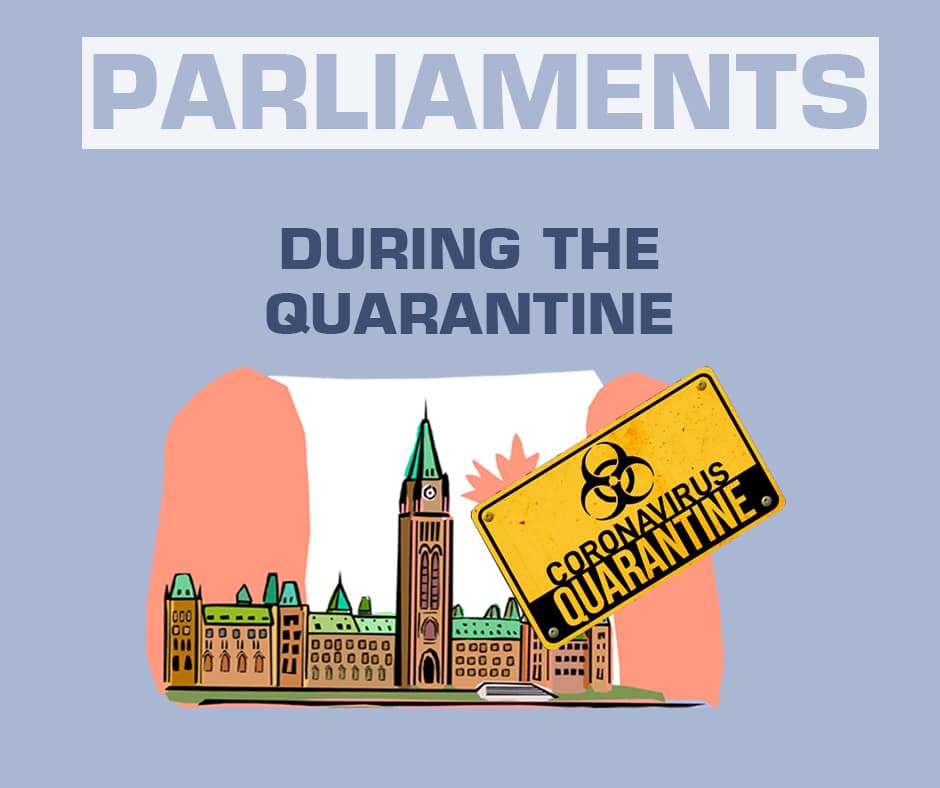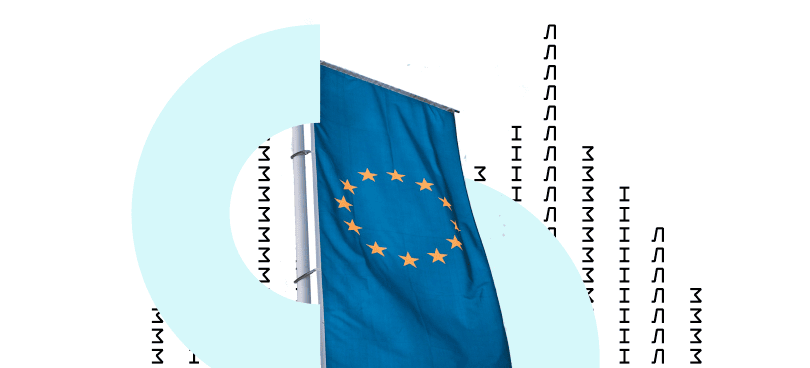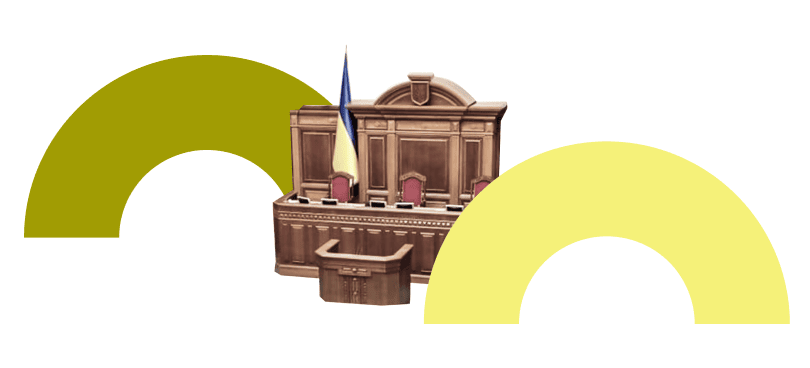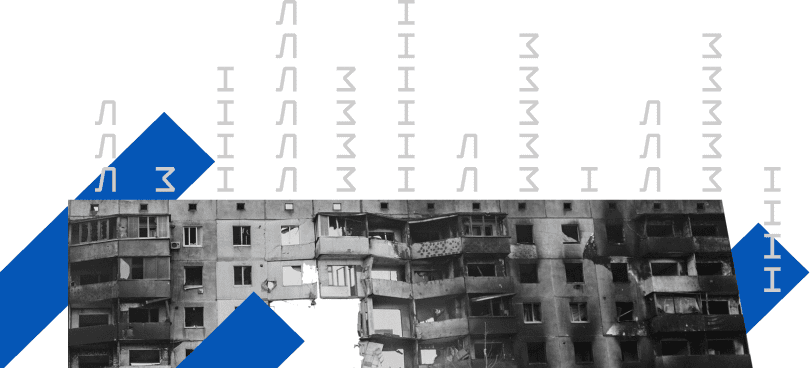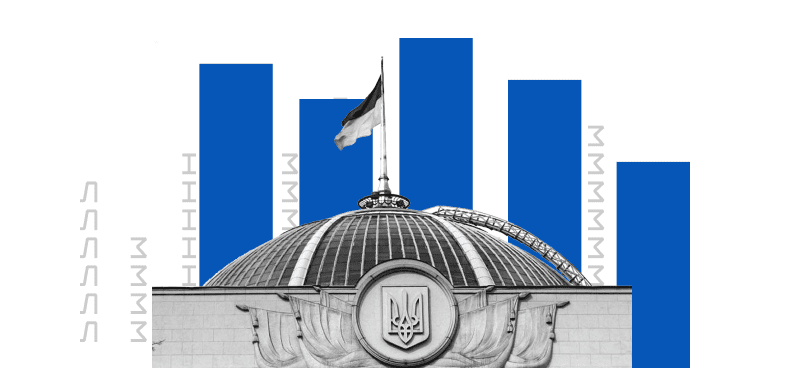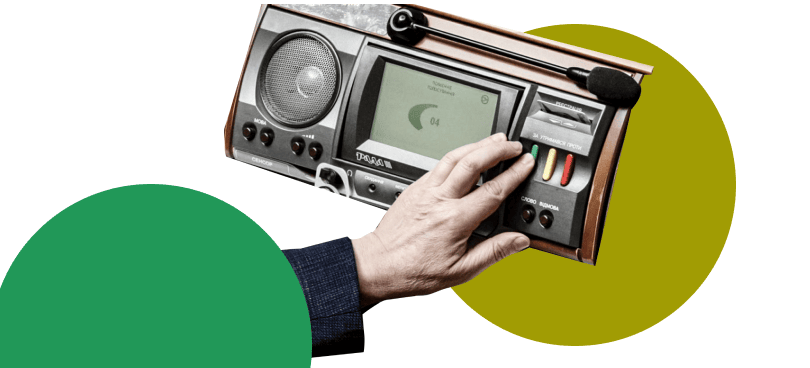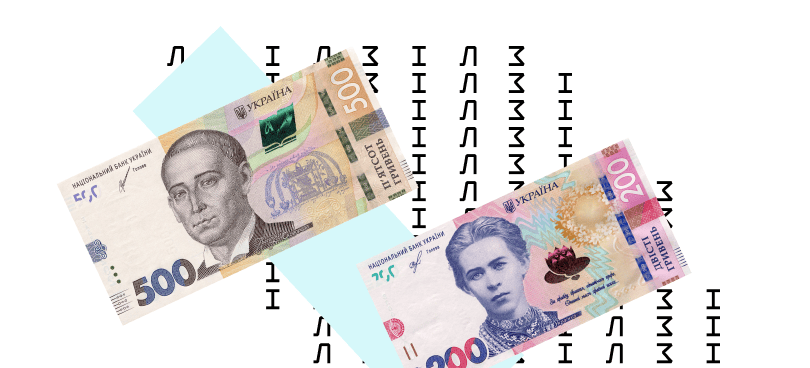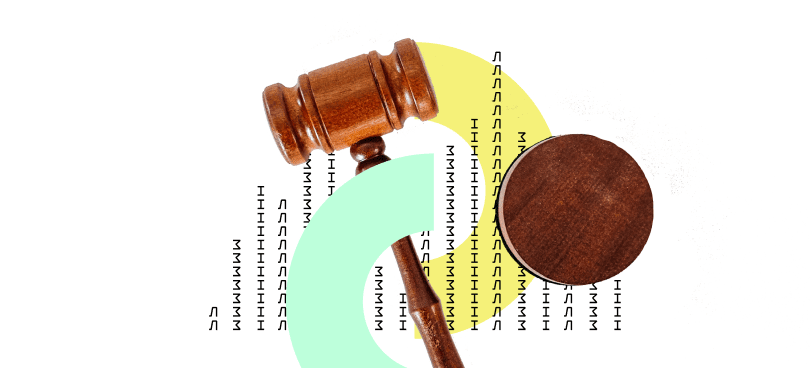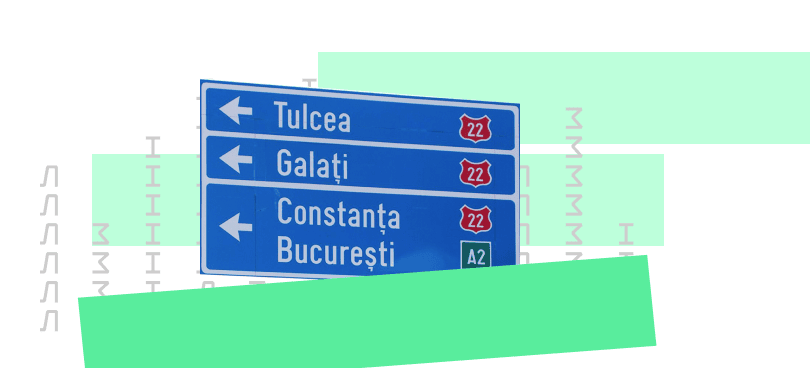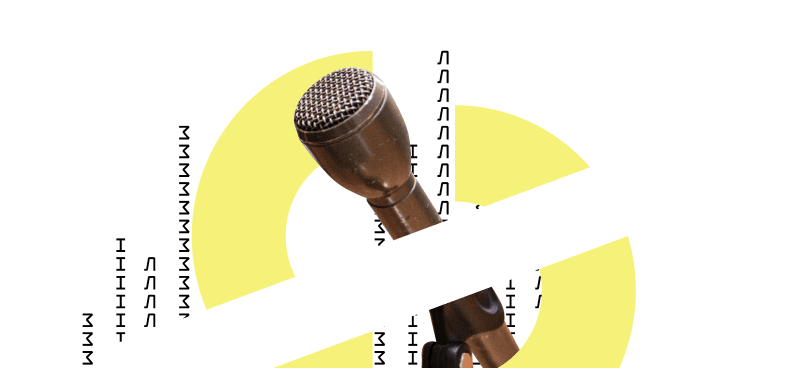Politicians have a high chance of getting the coronavirus, so maybe it’s worth banning their mass gatherings – parliamentary sessions?
We can talk about at least two forms of protection of MPs from the spread of infections.
Those are restrictions on access to the parliament building for non-MPs and postponements of the sittings.
Restricting access to the parliament building of non-deputies is quite common in the current situation. Many European parliaments have already introduced such measures. They consist of the prohibition of excursions, parliamentary hearings, meetings, seminars, cultural events held in parliament. At the same time, the parliament continues to work as a legislative body – plenary sessions are held there, and legislative acts are adopted. For example, in early March, the European Parliament canceled more than 100 events, postponed committee hearings, and election observation delegations. The only undisclosed event was a speech by Greta Thunberg. At this time, the President of the European Parliament – David Sassoli went on a two-week self-isolation due to a visit to Italy.
The second way is to postpone sittings. At present, sessions of national parliaments in the three countries have been delayed due to the coronavirus.
In Iran, the sittings of the Islamic Advisory Council have been postponed indefinitely, “until further notice.” This happened on February 28 and not without reason, as as of March, about 10% of Iranian MPs were infected with the coronavirus, and several of them died.
The Canadian parliament postponed its sittings for a month, until April 20. Ahead of the decision to delay the meeting, it became known that the wife of Canadian Prime Minister Justin Trudeau, Sophie, had contracted the coronavirus.
In Spain, the prime minister’s wife also has coronavirus. And there, too, parliamentary sessions have been postponed. However, unlike in Canada, Spanish history is more interesting. On March 9, Javier Ortega Smith, leader of Spain’s right-wing Radical party, was hospitalized with a fever. Before that, he took part in a rally of 9,000 people on March 8. There he hugged and kissed dozens of his fans. As a result, all 52 MPs from the Spanish Voice isolated themselves, and Javier Ortega criticized the government for failing to impose restrictions on mass events in time. Finally, on March 12, the Spanish Parliament postponed its sittings from the regular schedule for two weeks. This means that, if necessary, the parliament will convene and make the essential decisions, only the planned agenda is postponed. A meeting is scheduled for March 24 to consider the approval of some regulations. Regional registries also postpone their meetings, as did the regional Parliament of Andalusia, which adjourned the meeting for a week.
What is the difference between the Iranian Majlis and the parliaments of Spain and Canada? In authoritarian Iran, sittings have been postponed indefinitely, where parliament is not the center of decision-making, so it does not matter when the Majlis convenes again. Instead, Spain and Canada are democracies. In democracies, parliament plays an important role – it performs the legislative function and controls the executive branch. Democratic parliaments approve emergency government measures, such as restrictions on fundamental human rights and freedoms or additional budget expenditures. This is necessary to prevent the usurpation of power by the government.
The Canadian parliament postponed its sittings only after giving the government extraordinary budget management powers. The Canadian government can now incur additional costs to fight the epidemic without the consent of parliament. The Spanish Parliament postponed its meetings with the opportunity to convene quickly and adopt the necessary emergency measures or expenditures. The European Parliament did not postpone its sittings because “No virus can block democracy,” according to David Sassoli.
We can also mention the resolution 3218, which was adopted by the Verkhovna Rada on March 17. The Verkhovna Rada postponed parliamentary hearings and plenary sittings, devoting time to April 3 to work in committees. And this is the right decision, because the next day, March 18, one of the Ukrainian MPs was diagnosed with a coronavirus. At the same time, the MP contacted his colleagues when he could have been infected.
If necessary, the Verkhovna Rada may meet promptly by the decision of the Conciliation Council. That is, the adoption of Resolution 3218 can be considered positive.
Thus, the postponement of parliamentary sessions in a democracy is carried out responsibly and carefully, for a clearly defined time. Parliament, which is the center of decision-making, can convene urgently in the event of a crisis, to approve government emergency measures or additional costs.

